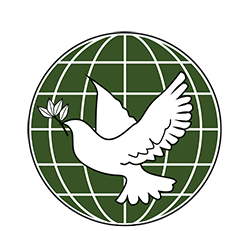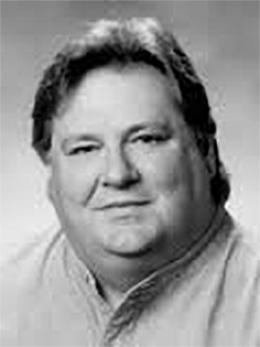Walter Enloe
Walter Enloe was a loving husband, father, teacher, educational leader, participant-observer of organizations and cultures, scholar, author, artist and peace activist. He was born in Alexandria, Louisiana in 1949, the first of four children. In his mid-thirties, Walter’s father felt the calling to be a Presbyterian missionary, so the family moved to Decatur, Georgia while he completed his studies in preparation for his later work. Upon arriving in Japan in seventh grade, Walter and his siblings began attending Canadian Academy in Kobe as day students while his parents attended language school for two years. Then, given their first assignment to start a new church in Hiroshima, the three older children began going to Canadian Academy as boarding students while his much-younger little sister attended Hiroshima International School. By tenth grade, Walter and his two older siblings were attending Matthew C. Perry high school in Iwakuni, Japan, closer to home.
By Walter’s senior year it was time for a one-year family furlough in America. The family moved to Princeton, New Jersey. As he explored possible colleges, Walter’s eye was caught by an article in Time magazine about an innovative college in Florida that interested him. He applied to and was accepted to Florida Presbyterian College (Eckerd College). He met his future wife, Kitty, his freshman year. By his junior year he was the Student Director of Academic Affairs, followed by his election as Student Body President his senior year. He was part of the Jefferson House program that allowed you to work with a faculty sponsor to design your own major and study primarily through independent courses.
He went to Emory University’s Institute of Liberal Arts in Atlanta, Georgia, where he became immersed in Jean Piaget’s developmental theory of knowledge and earned his PhD while also teaching at The Paideia School. His teaching career there included teaching in early childhood, elementary and secondary classrooms.
In 1980, Walter, Kitty and son Isaac moved to Hiroshima, Japan, where Walter would be both the principal and a lead teacher at Hiroshima International School for 8 years and Kitty would be a classroom teacher. Their daughter Serene was born there in 1982. It was here that Walter’s interest in peace education began and where he and his students founded the Thousand Crane Club, which is still active today.
Walter was recruited by the University of Minnesota in 1988, necessitating a move to Minneapolis, Minnesota. He came as a Senior Fellow in Global Education, leading the National Models School Project, working with rural school districts to internationalize their academic programs. He also worked in the Institute of International Studies with Minneapolis and St. Paul schools. He helped found the University’s Center for Applied Research and Educational Improvement.
Throughout his life and career, Walter was deeply involved in fostering learning communities with a focus on project-based learning, democratic education, peace education, and activism. It was natural, then, that he began working with public charter schools in the early 1990’s. He was on the cutting edge of the charter school movement and worked to support the creation of several innovative schools including Twin Cities Academy and Avalon School, among others.
In 1994 another career change began when Walter served as a founding faculty member of Hamline University’s Graduate School of Education. He helped create and taught in its MAEd and EdD programs and served as Hamline’s Gordon B. Sanders Chair in Education for two terms. His tenure of twenty-three years also included many collaborative publications including Learning Circles (1998), The Coolest School in America (2006), Inside Avalon: Creating and Sustaining a Learning Community (2012) and several books for students and teachers on Hiroshima, Nagasaki, and building cultures of nonviolence and peace. He likewise created a rich portfolio of visual art (walterenloe.com).
Walter worked as a senior consultant to Education Evolving, a consultant and board member for EdVisions, a fellow at the Center for Policy Design, and a founding member of the Birds of Peace Educators Collaborative. His peace work also included collaborating with The Hiroshima Peace Culture Foundation, St. Paul Nagasaki Sister City Committee and World Citizen Peace over many years.
His life was a life well-lived with a tremendous impact for good in the world. He achieved the goals he had set for himself in the “Philosophy of Life” he wrote at age fourteen: When I die, I want to have left something to the world even though it may affect only a few people. I want to have made my life useful and helpful to other people and to society. I want to be a good citizen of my community, state, country and world. I want to grow in respect and understanding of all cultures and peoples beginning with my Japanese friends and neighbors in Hiroshima. I want to help preserve peace and goodwill among all peoples through tolerance and respect, treating all peoples with respect and love.
He lived according to John Wesley’s quote that he helped become part of Hamline’s annual commencement ceremony:
Do all the good you can,
By all the means you can,
In all the ways you can,
In all the places you can,
At all the times you can,
To all the people you can, as long as ever you can.

